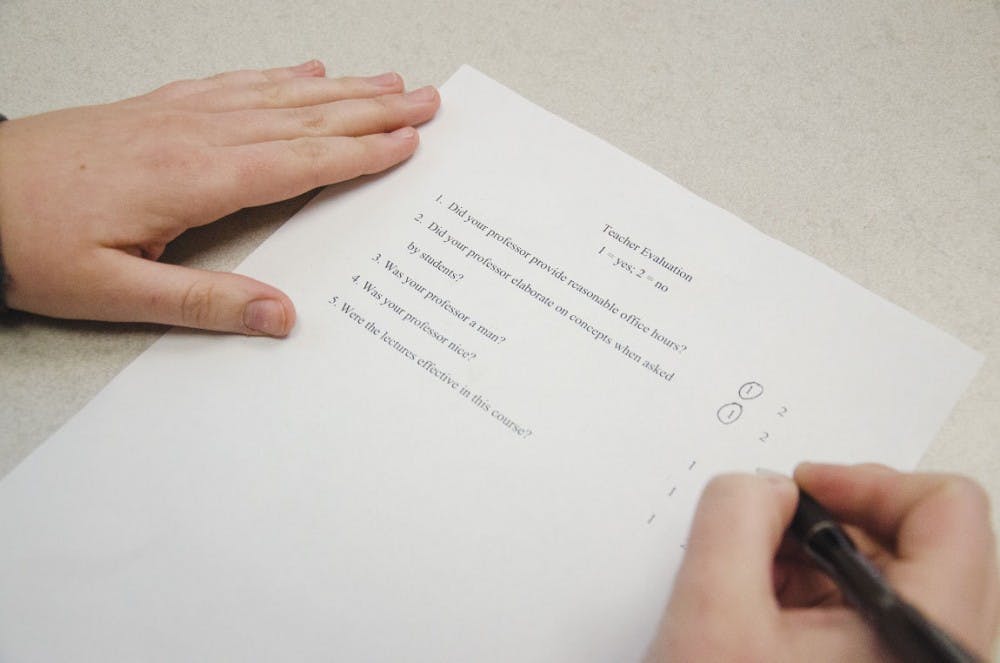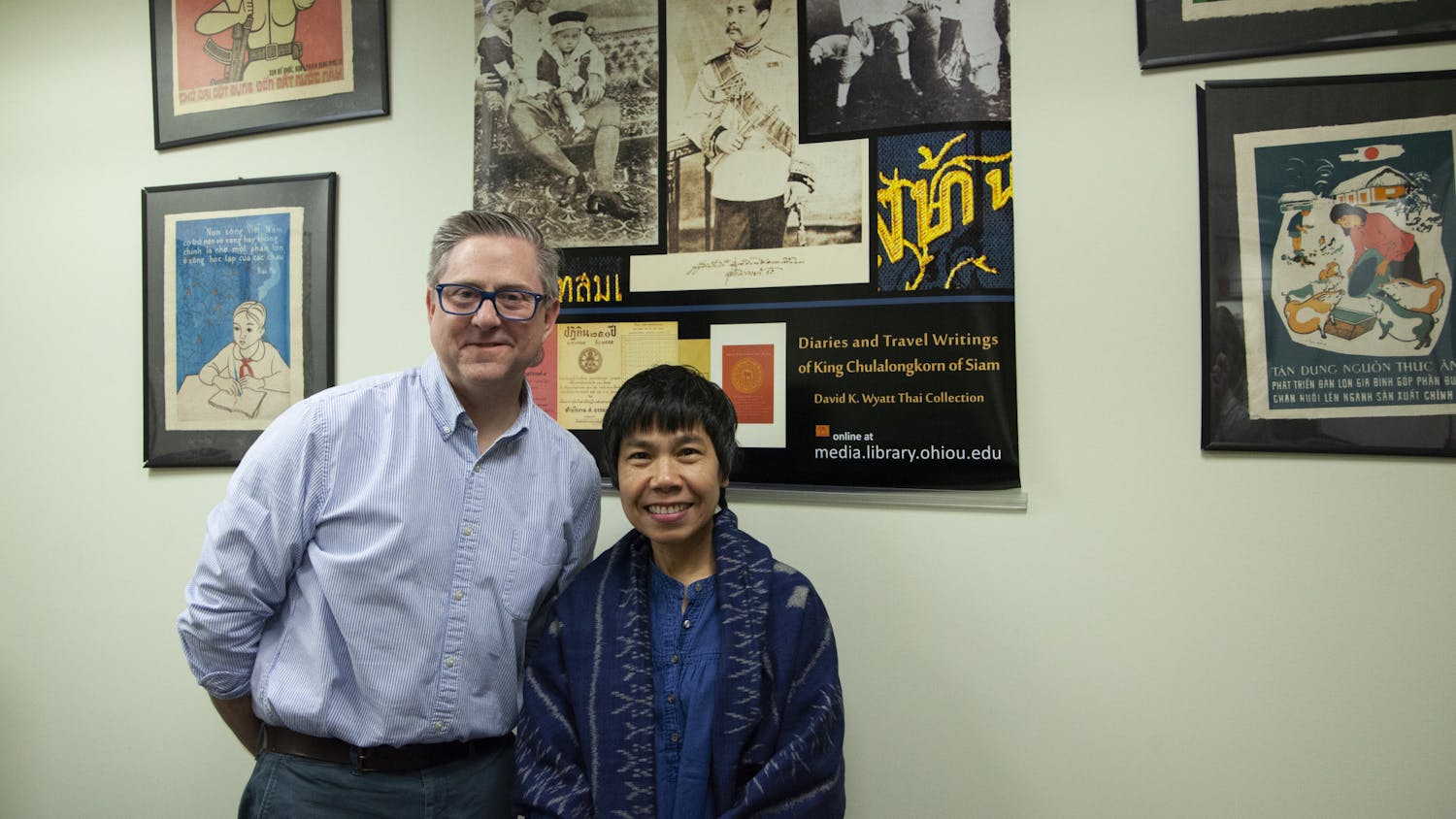Student evaluations of professors may not be the most accurate way to measure a professor’s teaching performance.
At the end of a semester, students are often pestered by a flood of emails reminding them to fill out evaluations for the professors of each of their classes.
It is easy for a busy student to quickly click through the surveys without putting a lot of thought into their responses and go about their day, but often the feedback given will have a significant impact on the instructors.
Norm O’Reilly, the department chair of sports administration in the College of Business, said the student responses “have a significant influence” on the overall evaluation of the faculty member.
Aspects such as tenure and raises are dependent on how the teacher does overall on a complete evaluation, including student evaluations, at all of the schools on campus, but the process varies from school to school, according to Mona Robinson, the chair of the Department of Counseling and Higher Education in the Patton College of Education.
The College of Business, O’Reilly said, tries to avoid possible biases by comparing the student evaluation to the overall average score given to the department, college and university. If the overall responses are unusual, the department chair at the College of Business will look at the qualitative feedback to determine if there are any possible biases.
However, if the chairs consistently see low scores in a particular area, they will talk with the faculty about what to do to improve the scores, Robinson said.
“As much as the chair would pay attention to a 2 out of 5, you would also pay attention to a 5 out of 5,” O’Reilly said.
Mark Barsamian, an associate lecturer of mathematics, said the way student evaluations are used nominally for things such as pay raises, tenure and teaching awards are “pretty pathetic.”
“It’s really silly that the university overwhelmingly outsources its evaluation of teachers to this one measure,” Barsamian said. “It’s very useless overall.”
Barsamian said student evaluations are merely a measure of student opinion.
“It really doesn’t matter what the students think of the instructor, unless they’re doing something unprofessional,” Barsamian said. “(Student evaluations) are basically measuring bedside manner.”
Barsamian added that the situation is comparable to a patient picking a doctor to perform his or her surgery. Most surgeons have good “bedside manner,” but a patient would rather hear about how effectively and quickly the surgeon’s patients recover.
Some students will be biased in an evaluation because a professor gave them a grade they didn’t like, O’Reilly said.
“There’s profs that are really poor teachers who are just really easy,” O’Reilly said. “They get high evaluations … even though their content is not helping students get jobs.”
Robinson said department chairs can look at past evaluations and see that males have historically scored higher than women, especially in classes that are more difficult. She added that minorities also tend to get lower scores than white men, especially in harder courses.
“Chairs, in general, should be mindful of (certain biases),” Robinson said. “If they don’t consider those factors, they are doing a disservice to the faculty member.”
When students fill out the evaluations, O’Reilly stressed that they need to fill them out seriously.
However, a more effective way to measure a professor’s teaching methods, Barsamian said, would be to look at what a student has effectively learned from their pre-requisite classes and then compare the progress. He added that the information about a student’s progressive scores would be more difficult to obtain, but that it is available in the university.
“Student grade performance, it’s all data that’s in the system at OU, but I’m not privy to that data,” Barsamian said. “They would need, at the university level, to make it a priority to measure stuff like that.”
{{tncms-asset app="editorial" id="f8b1a998-dbeb-11e5-9525-33a39de0ef50"}}
However, not all classes have a pre-requisite to them, but there are courses that utilize skills from general classes that could be used to evaluate a student’s progress, Barsamian said. He also added that teachers could do benchmark exams at the beginning and end of the course to evaluate progress.
“The university says they value teaching,” Barsamian said. “Well, how much do they value it? If that’s the only way they’re measuring it then that’s kind of a silly thing to say.”
@_alexdarus
ad019914@ohio.edu






